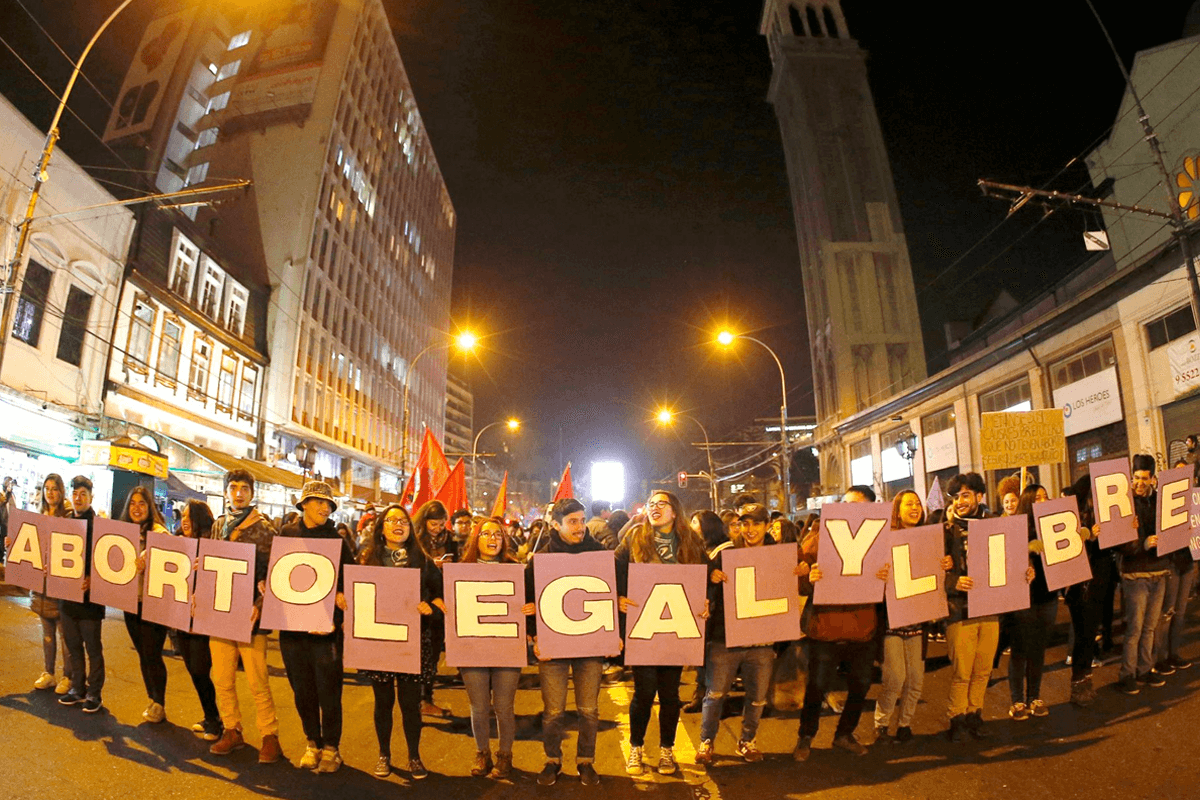
A wealthy and well-connected anti-abortion group has gone to court to block the disclosure of its private donors following an investigation by openDemocracy and La Pública. It comes after a year-long effort by the two news organisations that reveals how three powerful anti-rights, non-profit groups in Chile are using legal loopholes to protect the identity of their funders, while influencing politicians to limit reproductive and equal rights for women and LGBTIQ communities.
Two of the groups – Cuide Chile and the Organization for Research, Training and Women’s Studies (ISFEM) – have not declared any private donations at all in their tax returns. The other group – Chile Unido (United Chile) – has declared private donations, but not the source of them. So, earlier this year openDemocracy and La Pública asked Chile’s independent Transparency Council for Chile Unido’s donor information to be made public. The request was granted, but the country’s tax laws allow non-profits and private foundations to keep donors’ names secret and Chile Unido is appealing the Transparency Council’s decision on those grounds.
The case could set a legal precedent on the robustness of privacy vs. financial disclosure shields. The Transparency Council ruling, which granted disclosure, cited a legitimate “public interest” in the donors because they receive tax breaks. It said that tax breaks are “a benefit” granted by the state and paid by society as a whole. The group went to court to fight back.
Open Democracy’s article shows the links between Cuide Chile and the right-wing Republican party. Since August 2018, Cuide Chile has intervened in at least 14 parliamentary committees to oppose legislation to end gender discrimination, promote sexuality education and grant same-sex couples the right to be parents. Along with other conservative groups, Cuide Chile wants specific policies in the new draft constitution. These include the right to life from the moment of conception, which would make abortion impossible even under exemptions currently allowed by law. They also include the right to individual and institutional conscientious objection, which would allow the denial of certain educational and health care services. Another is the parents’ right to choose what their children are taught in school, e.g. allowing them to oppose comprehensive sex education.
Another active group, ISFEM (Organisation for Research, Training and Women’s Studies), is a lobby and advocacy group against equal rights for LGTBIQ people and sexual and reproductive rights. They have lobbied the Chilean legislature since 2005, according to a review of parliamentary agendas and bulletins. They have also participated in 45 committee hearings and debates, arguing against legislation granting some family rights to same-sex couples, the decriminalisation of abortion on three specific grounds and the gender identity law.
The good news is that despite their opposition, progress was made. The civil union law was approved in 2015 – and followed by an equal marriage law in 2021. In 2017, abortion was decriminalised if a woman’s life is in danger, when a fetus is unviable, and/or when the pregnancy resulted from rape. And in 2018, the gender identity law allowed transgender people to change their name and gender in official records. La lutta continua!
SOURCES: Open Democracy, by Paulette Desormeaux, Catalina Gaete, 13 September 2023 ; Reuters by Alexander Villegas, 16 March 2022 + PHOTO: Rodrigo Garrido/Reuters File Photo, 2018 Santiago demonstration.



